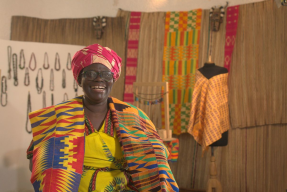Home • Microfinance • Article
The bigger picture behind smaller loans: instability and micro-finance
January 21, 2014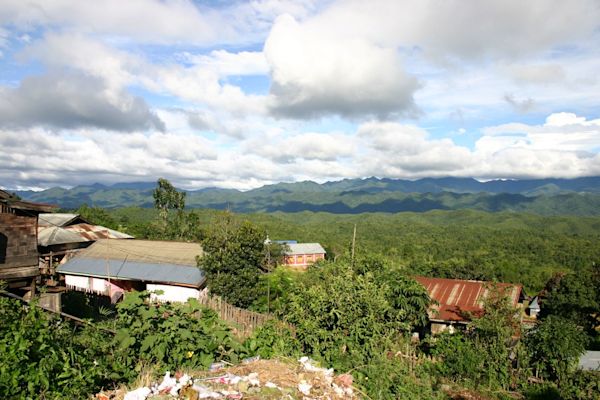
As a dedicated supporter of Kiva, I love all of the fascinating new loan products and businesses that are financed through Kiva loans; however, after spending over 2 months in Northeastern India, I feel compelled to highlight Kiva Partner WSDS’s loans because the impact and ingenuity of their programs may not be immediately apparent.
WSDS works in Manipur, a small state on the far North Eastern border of India, just a mountain range away from Myanmar. Here, many of the people live a life very different than the rest of the country. For example, 40% of the residents are Christian, the traditional dress for women is a wrap around skirt instead of a Sari, and their language and physical features group them with the Tibeto-Burmese instead of their Indo-Aryan neighbors. They have also only been a fully recognized state of India since 1972, and there are many in the community who fight for their state to be recognized instead as a separate political entity. The insurgency is often divided along tribal lines, with the more than 30 tribes of Manipur forming 15 proscribed or active insurgent groups.
These groups also fight amongst each other, vying for power, land, prominence, and sometimes just a voice. As to be expected, the presence of these groups due to their fighting and protests further disadvantages an already unstable economy. This additional instability makes it difficult for large business to come in from the outside or even to flourish from within. To this day, Manipur remains one of the least developed states in India. This is not aided by the fact that larger development projects led by the government often get bogged down and diluted within the bureaucracy.
All of these factors make WSDS unique to the area. The organization maintains diversity with their staff and programs, spanning tribes and political identities. Their loans are small and often for basic business purposes, yet through them, loan by loan, small business by family farm, they are contributing to the breaking down of tribal barriers and growing the economy from the grassroots up.
While in Manipur, I was able to travel with the WSDS team to the site of a new branch location on I-T road, named for the two villages it connects by a winding dirt path dug into the steep mountainside. Five years ago vehicles couldn’t pass this way, so WSDS’s CEO Mr. Mang went by foot, two days in, two days out, to understand the local economy and how he could grow WSDS to support it. With the new road now under construction, along with the financial backing of the Kiva community, he is finally able to follow through on this dream.
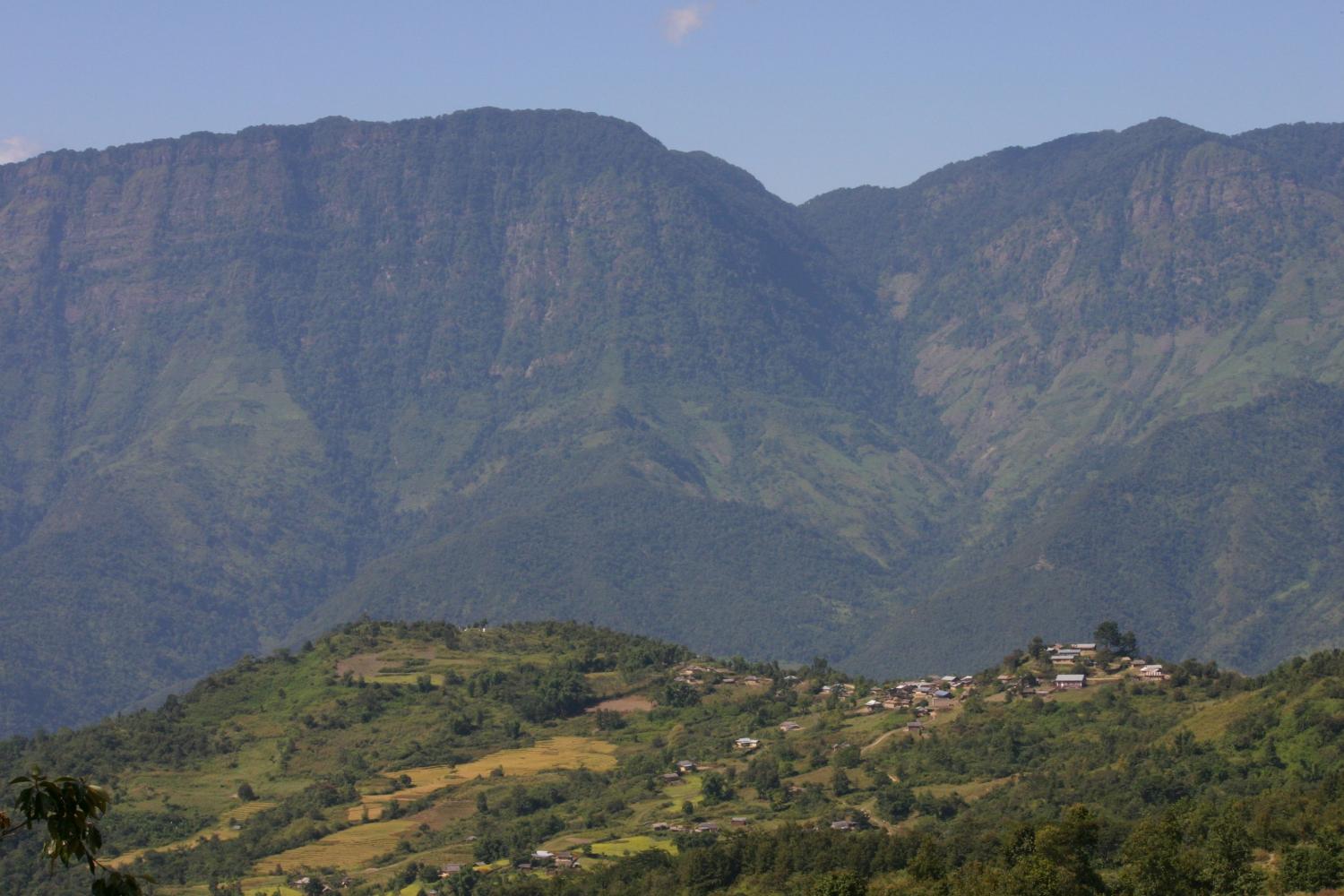 A village along I-T Road
A village along I-T RoadWSDS’s work is particularly bold in this region because it goes beyond teaching people about savings and credit to convincing the tribal people to trust one another enough to work across tribal lines. I-T Road Region is in the north of the state and contains villages of both of Manipur’s largest tribes, the Kukis and the Nagas. Twenty years ago, the tribes fought for control over the region. The Nagas hoped to succeed what they considered to be their land from Manipur to join the state just to the north that is named for their people, Nagaland. What ensued was years of bloody conflict, escalating throughout the state and resulting in the loss of over 1,000 lives. While most relations are peaceful now, there is still a sense of distrust between many people in both tribes.
Mr. Mang is a Kuki, as is his brother-in-law helps him run WSDS. They also have several Naga staff members, and when moving into the I-T Road Region, Mr. Mang deliberately visited the Naga villages first. When we visited the first location that would be covered by the new branch office, it took us almost four hours by jeep to from the WSDS Head Office, with several gasps looking down from the road at the cliffs cascading beneath us. When we arrived, the newly hired local loan officer had brought over 40 members of the village, mostly women, into the meeting hall to learn about WSDS. After an introduction from the loan officer in his tribal dialect, Mr. Mang got straight to the point.
“We can’t ignore that I’m a Kuki and you’re a Naga,” he said in Manipuri, which they all could understand, “But development isn’t just within tribal lines. We all need to improve our lives. Money doesn’t care if I’m a Kuki or a Naga.”
 Mr. Mang explaining the WSDS and Kiva finance program
Mr. Mang explaining the WSDS and Kiva finance programThe reaction wasn’t immediate, and questions were slow to come. But after an hour or so of explanations, they began to roll in. People wanted to know where collections and disbursements would be. Would the regional office be in a Kuki village? What if there was a surge in conflict, would they not be able to get their money?
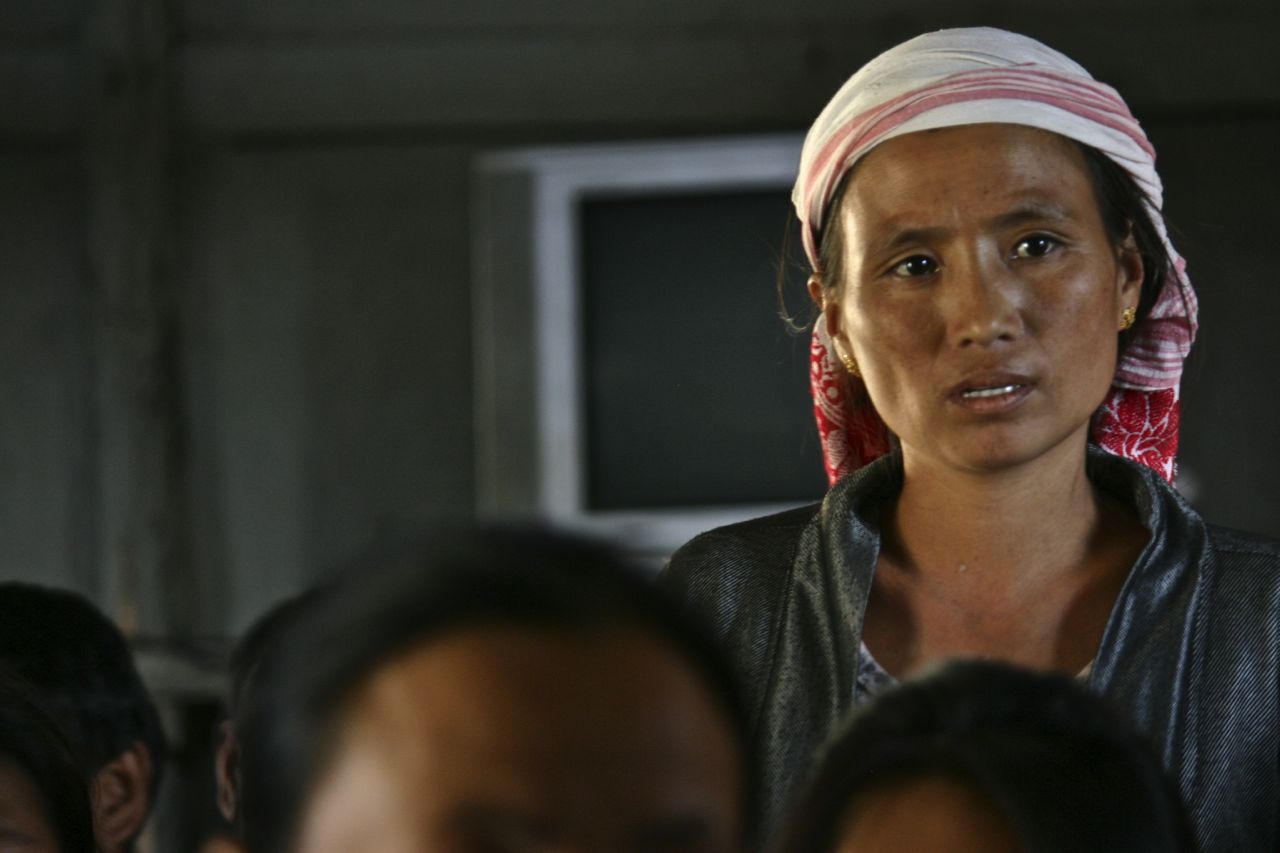 A villager asking Mr. Mang a question
A villager asking Mr. Mang a questionTo this, Mr. Mang answered: there wouldn’t be a conflict, but if there was, they would be sure that everyone received what was due. He went on from there, speaking about all of the opportunities possible through microfinance. It could go beyond loans for small stores or fertilizers, to even pooling funds to build store shelters or investing in crop diversification.
By the time he was through, everyone was paying attention. There would still need to be a meeting of the village council, but the interest was clear. I was then invited to explain what Kiva was, and how the women were joining this international community of lenders and borrowers in villages and cities all over the world. There were smiles, and jokes, and at then end, a plate of hot milk tea.
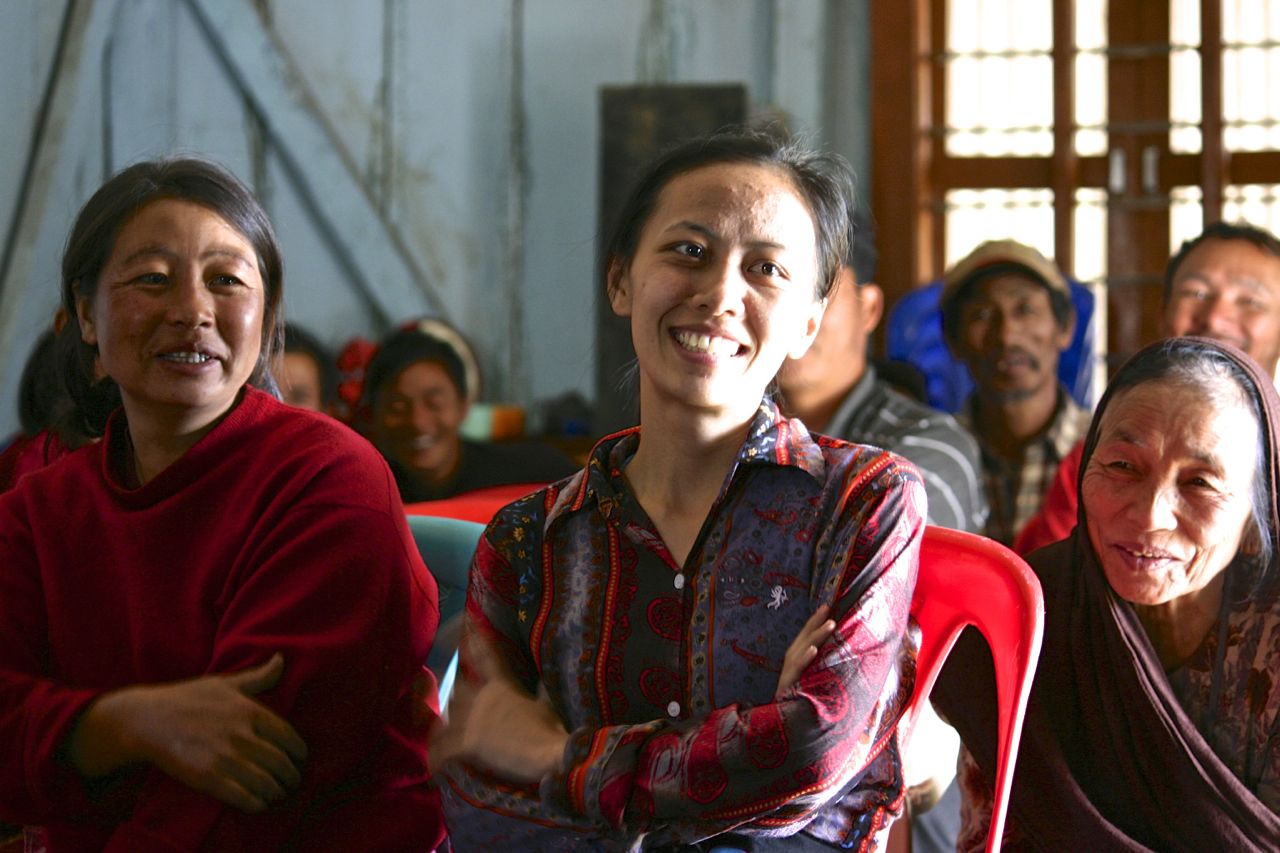 Several villagers laughing at one of Mr. Mang's jokes
Several villagers laughing at one of Mr. Mang's jokes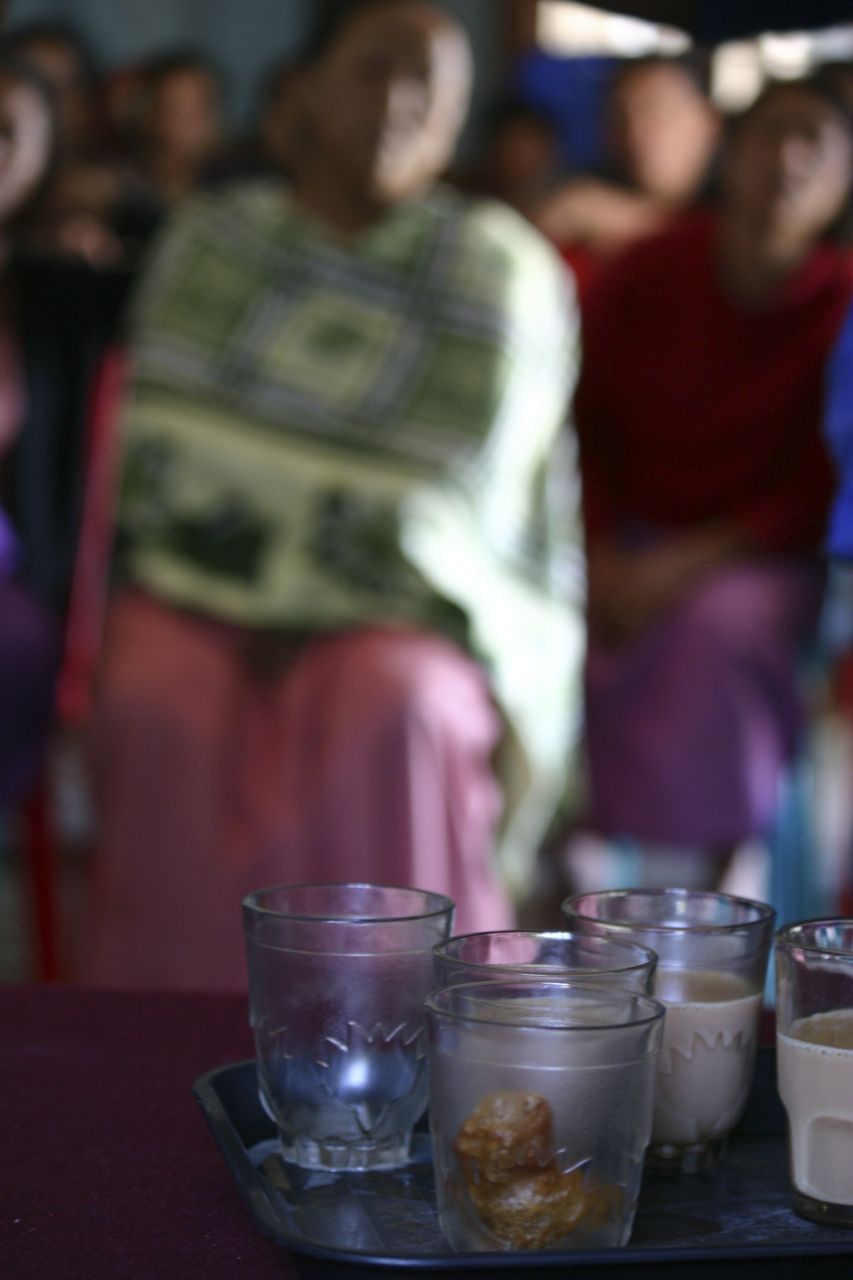 Our half-drunken tea
Our half-drunken teaThe reason I chose to highlight this story is simple. The loans in Manipur are often basic in comparison to some of the other loans you might see on Kiva: stocks for a shop, funds to buy land, and other small steps in the lives of the women WSDS supports. The story however, is much larger. It’s the story of people living in unstable times, in which the larger economic tides of their state can seem so out of their control. Yet, with just one loan, they can build their business and save some money. Maybe, they can then send their children to a better school in the valley that coincidentally has kids from families of all of the tribes and nationalities that comprise the increasingly diverse tapestry of Manipur. Maybe, it can even be a step towards peace.
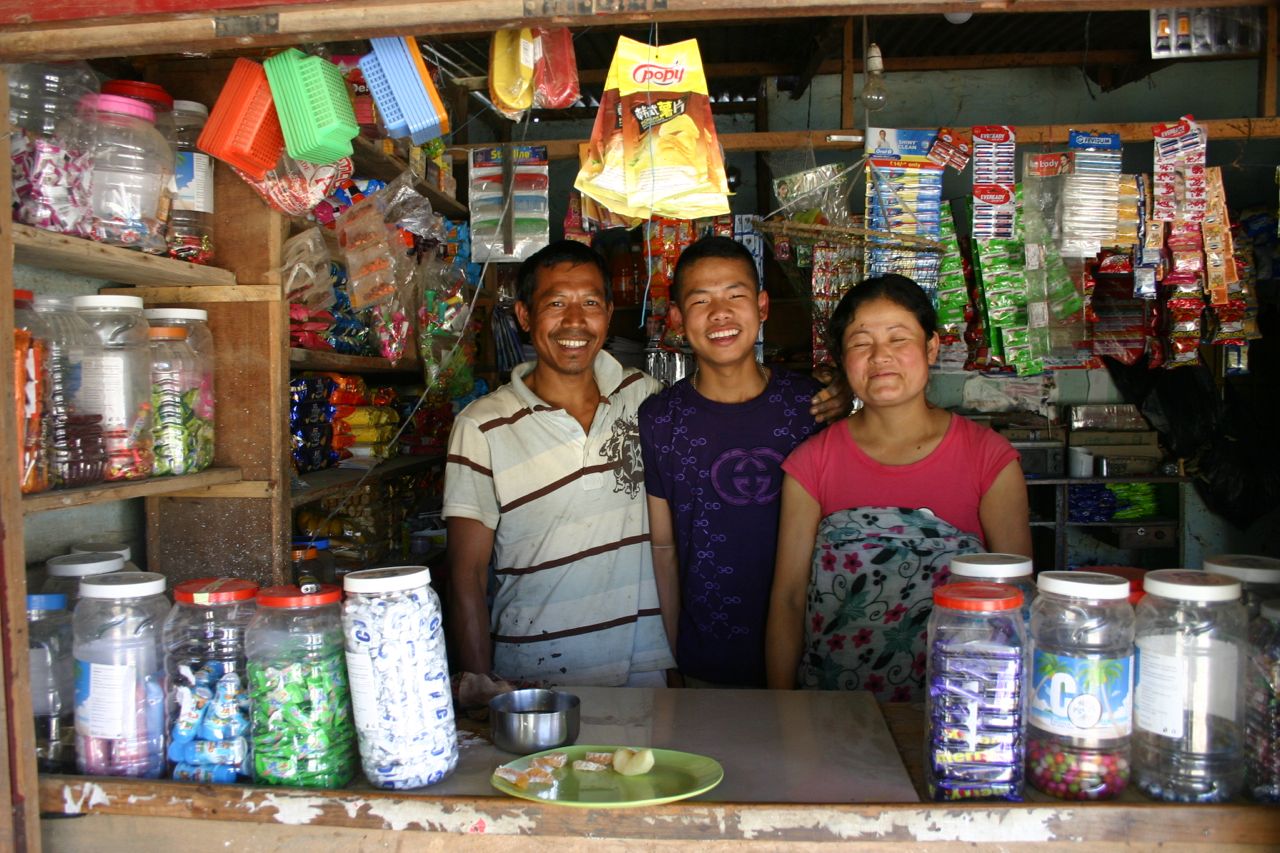 A WSDS-Kiva client with her family in her store
A WSDS-Kiva client with her family in her store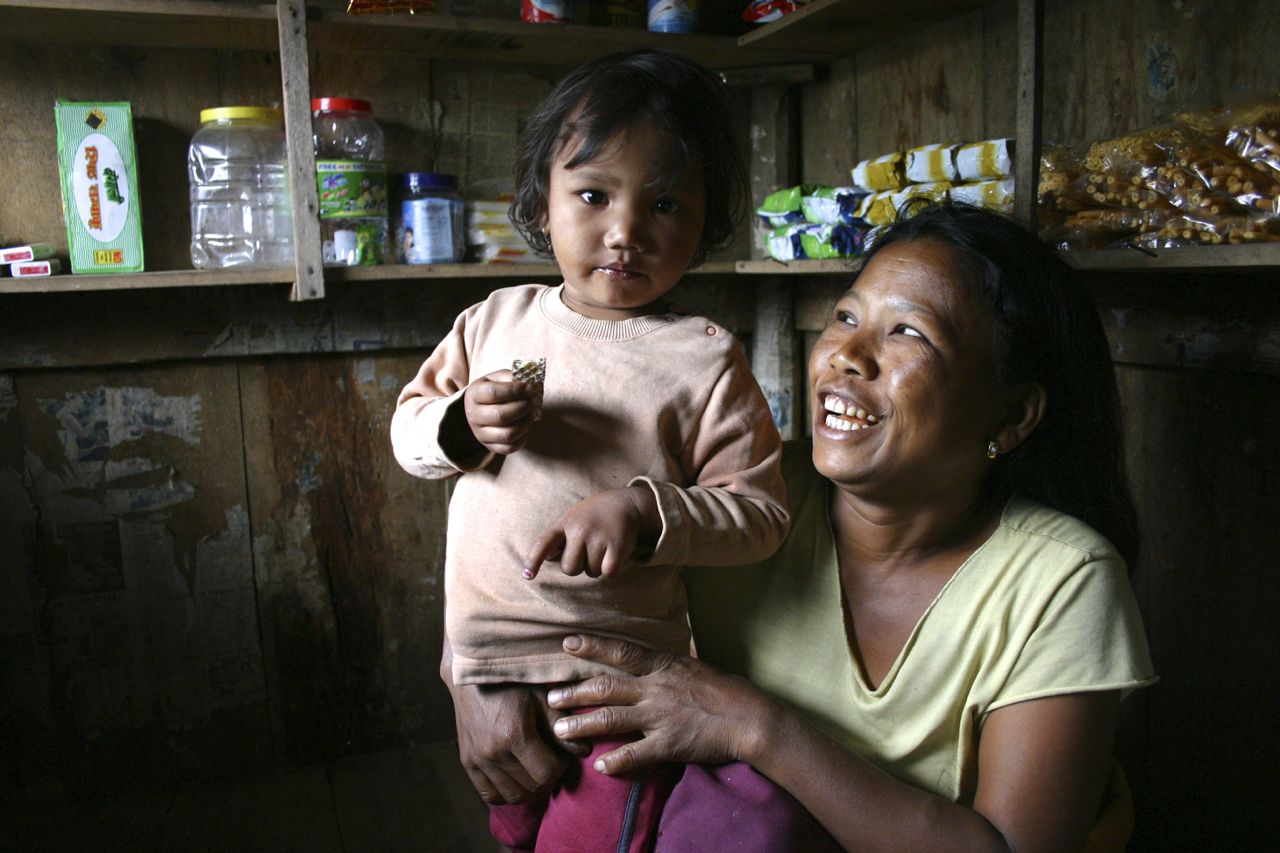 Hellut, a WSDS-Kiva client with her daughter in her store
Hellut, a WSDS-Kiva client with her daughter in her storeSupport one of the women in WSDS's network by funding one of thier loans here!
PREVIOUS ARTICLE
Microfinance and Watsan: Seeking Sustainable Solutions in Cochabamba, Bolivia →NEXT ARTICLE
Featured Volunteer: Lynn C. →


